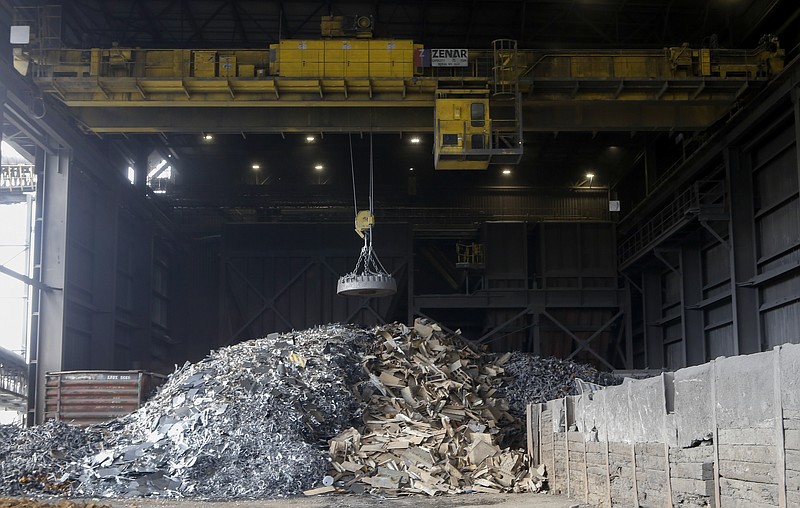Waupaca Foundry, an Etowah, Tennessee, company that makes iron castings for parts used in cars and trucks, has put into place what it calls a unique just-in-time supply chain for its industry.
From Waupaca's headquarters in Wisconsin, executives oversee a massive supply of goods to feed its seven United States factories on an hour-to-hour basis, officials say.
"It's incredible if you think of the volume in which we consume things," says John Wiesbrock, the executive vice president of sales, marketing, and supply chain management for the company.
At the Etowah foundry, which is now at a five-year employment high of 560 people, the company makes castings used in auto brake calipers, anchors, differential cases, control arms and knuckles. Doug Pohl, Waupaca's director of procurement and supply, said there's a truck dumping some kind of raw material used in production about every 20 or 30 minutes in Etowah.
"We're utilizing a lot of local resources to keep our plant running," he says.
Wiesbrock likens the supply chain effort to air traffic control.
"These guys are moving material and changing things as circumstances change really from an hour-to-hour basis, sometimes minute to minute. Sometimes it's a 7-day/24-hour job," he says.
At any time at the Etowah facility, there's only a four- to six-hour supply of scrap metal, which is a key raw material used in production, Wiesbrock says.
For sand, another resource, there's enough for one eight-hour shift, Wiesbrock says. For bonding agents, there's only enough on site for two days, he says.

